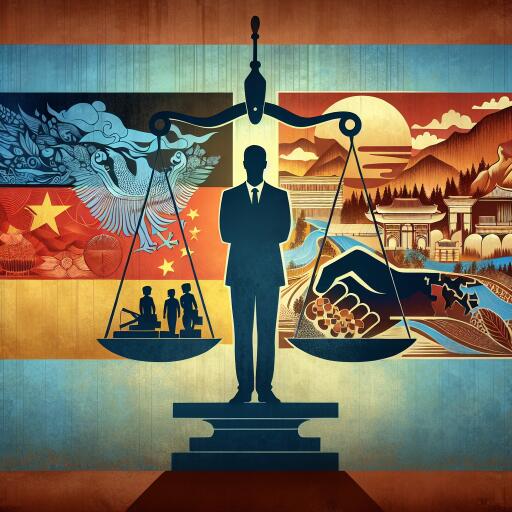Germany’s Scholz Calls for Fair Competition and Warns Against Dumping During China Visit
During his visit to China, German Chancellor Olaf Scholz emphasized the importance of fair competition in trade relations, particularly highlighting the concerns about dumping and overproduction. This visit comes at a crucial time when the European Union is considering imposing tariffs on Chinese-made electric vehicles to prevent potential market flooding that could undermine European producers.
In a dialogue with students at Tongji University in Shanghai, Scholz expressed, “The one thing that must always be clear is that competition must be fair. We expect no restrictions on our companies, and we demand fair practices in return, without resorting to dumping or overproduction.” This stance is crucial amidst the growing concerns over EU tariffs aimed at safeguarding its automotive industry from less expensive Chinese imports.
Despite the worry surrounding these tariffs, the head of Germany’s auto industry association, the VDA, Hildegard Muller, cautioned against such measures. Pointing out the potential repercussions on the European and German auto sectors, Muller argues that trade conflicts could inadvertently harm the industry and jeopardize jobs in Germany that rely on business with China.
Reflecting on the apprehensions once held when Japanese and Korean automotive brands entered the German market, Scholz noted that those fears were unfounded and hinted at a future where Chinese cars might find their way into Germany and Europe, just as German cars have made their presence felt in China through collaborations with Chinese manufacturers.
The Chancellor’s three-day trip began in Chongqing, an industrial stronghold, before scheduled meetings with Chinese President Xi Jinping and Premier Li Qiang in Beijing. Among the anticipated topics of discussion is China’s stance and support regarding Russia’s ongoing conflict in Ukraine, especially in light of China’s continued trade with Russia and joint military exercises.
Scholz’s visit also shadowed concerns over Taiwan’s security, with the Chancellor stating at Shanghai’s Tongji University that “borders must not be moved by force,” emphasizing mutual respect among nations and the role of international institutions like the World Trade Organisation in maintaining global peace and order.
China remains Germany’s most significant trading partner, with reciprocal trade valued at 254.1 billion euros in 2023, despite political and trade tensions. This marks Scholz’s second visit to China as Chancellor, the first of which occurred in November 2022 amidst stringent COVID-19 restrictions. The trip also follows the German government’s presentation of its China strategy, which met with criticism from Beijing and the visit of Premier Li and a high-level Chinese delegation to Berlin in June.
The engagement between Germany and China continues to be a balancing act of addressing political concerns while nurturing a trade relationship paramount to both nations’ economies. As Scholz concludes his visit, the dialogue between the two countries is expected to pave the way for future interactions in an ever-evolving global landscape.
